Listen now on Apple, Spotify, and YouTube.
Brought to you by:
• Eppo—Run reliable, impactful experiments
• Airtable ProductCentral—Launch to new heights with a unified system for product development
• OneSchema—Import CSV data 10x faster
—
Chandra Janakiraman is the chief product officer, executive vice president, and a board member at VRChat. Previously, he was a product leader at Meta, where he led Facebook’s social experience interfaces and Reality Labs’ growth; served as CPO at Headspace, where he helped relaunch the platform, driving a 4x subscriber boost; and was a GM at Zynga, delivering massive hit games that reached hundreds of millions. In our conversation, Chandra shares:
His playbook for developing a product strategy
The difference between “small s” and “big S” strategy
How to run strategy sprints
Who should be involved in strategy work
Common pitfalls in strategy development
The role of AI in future strategy development
More
Some takeaways:
Product strategy sits between mission/vision and execution plans, forcing choices about where to deploy scarce resources for maximum impact. A good strategy includes three key components:
A handful of focus areas (strategic pillars)
Areas explicitly not in focus
Clear reasoning for both choices
The “small s” strategy process takes 8 to 12 weeks and consists of five phases:
Preparation (4 weeks): Form a working group (engineering, product, design, data), and gather inputs including behavioral data, user research, leadership interviews, competitive analysis, and user observations
Strategy sprint (1 week): Share findings, identify problems, cluster into opportunities, and select 3 to 5 strategic pillars
Design sprint (1 week): Create illustrative concepts to bring the strategy to life
Document writing (1 to 2 weeks): Craft a cohesive strategy narrative
Rollout (2 to 3 weeks): Share with stakeholders and gather alignment
For longer-term strategic thinking, use the “big S” approach, which:
Takes a more aspirational view (5- to 10-year horizon)
Is typically led by design/research rather than product
Focuses on envisioning distinct future scenarios
Uses concept prototypes to test and validate ideas
Can run in parallel with “small s” strategic work
When evaluating potential strategic pillars, assess them across four key dimensions:
Expected impact
Certainty of impact
Clarity of levers
Whether the levers are unique/differentiated
Strategy development will feel challenging and frustrating during the process—this is normal. Success requires:
Leaders who can integrate diverse viewpoints
Low-ego facilitators focused on bringing the team together
A playful approach to keep energy high during intensive work
Willingness to pivot based on execution results
The ultimate test of any strategy is results. Even a perfectly crafted strategy has no inherent business value until execution proves its merit. Teams must:
Test strategies through execution
Have the humility to acknowledge what isn’t working
Double down on what shows promise
Be willing to pivot when needed
AI is already useful for strategy work in two key ways:
Supporting preparation-phase research (competitive analysis, trend identification)
Generating “mock strategies” as input into the process
Future AI applications may include multi-agent systems that can continuously optimize specific product areas, like onboarding.
Where to find Chandra Janakiraman:
• LinkedIn: https://www.linkedin.com/in/chandramohanj/
In this episode, we cover:
(00:00) Chandra’s background
(04:47) The importance of strategy
(12:40) Defining product strategy
(15:42) Developing a winning strategy: an overview
(18:51) The preparation phase
(30:46) The strategy sprint process
(45:51) The design sprint
(51:19) Document writing
(57:39) Rolling out your strategy
(01:01:28) Resourcing and roadmapping
(01:04:42) Strategy lessons from Zynga
(01:11:34) Strategy lessons from Meta
(01:15:55) Big S strategy
(01:26:58) AI in strategy formulation
(01:38:12) Final thoughts and lightning round
Referenced:
• Headspace: https://www.headspace.com/
• Good Strategy, Bad Strategy | Richard Rumelt: https://www.lennysnewsletter.com/p/good-strategy-bad-strategy-richard
• 5 essential questions to craft a winning strategy | Roger Martin (author, advisor, speaker): https://www.lennysnewsletter.com/p/the-ultimate-guide-to-strategy-roger-martin
• VRChat: https://hello.vrchat.com/
• Andrew Chen on LinkedIn: https://www.linkedin.com/in/pmandrewchen/
• Template: Working Backwards PR FAQ: https://www.workingbackwards.com/resources/working-backwards-pr-faq
• How LinkedIn became interesting: The inside story | Tomer Cohen (CPO at LinkedIn): https://www.lennysnewsletter.com/p/how-linkedin-became-interesting-tomer-cohen
• Making time for what matters | Jake Knapp and John Zeratsky (authors of Sprint and Make Time, co-founders of Character Capital): https://www.lennysnewsletter.com/p/making-time-for-what-matters-jake
• Identify your bullseye customer in one day | Michael Margolis (UX Research Partner at Google Ventures): https://www.lennysnewsletter.com/p/finding-your-bullseye-customer-michael-margolis
• Chandra’s flow chart: https://docs.google.com/document/d/1SLmQ0oRFadzJnNM3MJetnLUvB18U4W4GXU4KtJ2ujEQ/edit?tab=t.0
• Chandra’s strategy template: https://docs.google.com/document/d/1iNeYUaMnpicvkpVZO-gj9cCxLeHfWN0xtGm_QoxgemE/edit?tab=t.0#heading=h.5d3jz6v86yrs
• Zynga: https://www.zynga.com/
• David Foster Wallace’s quote about water: https://www.goodreads.com/quotes/97082-there-are-these-two-young-fish-swimming-along-and-they
• Oculus: https://en.wikipedia.org/wiki/Oculus
• Elon Musk’s quote: https://www.youtube.com/shorts/wf8TadbGYok
• Concept car: https://en.wikipedia.org/wiki/Concept_car
• Acquired podcast: The Mark Zuckerberg interview: https://www.acquired.fm/episodes/the-mark-zuckerberg-interview
• Armand Ruiz on LinkedIn: https://www.linkedin.com/in/armand-ruiz/
• What is a multi-armed bandit? Full explanation: https://amplitude.com/explore/experiment/multi-armed-bandit
• IF on Prime Video: https://www.amazon.com/IF-John-Krasinski/dp/B0CW19SCVW
• Dune: Part 2 on AppleTV+: https://tv.apple.com/us/movie/dune-part-two/umc.cmc.363aycnv6vy9qgekvew6fveb9
• Dune Prophecy on Max: https://www.max.com/shows/dune-prophecy-2024/57660b16-a32a-476f-89da-3302ac379e91
• Capybara Go on the App Store: https://apps.apple.com/ph/app/capybara-go/id6596787726
• Bluesky: https://bsky.app/
• Steve Jobs: The Lost Interview on Prime Video: https://www.amazon.com/Steve-Jobs-Lost-Interview/dp/B01IJD1BES
Recommended books:
• The Art of War: https://www.amazon.com/Art-War-Sun-Tzu/dp/1599869772
• Competitive Strategy: Techniques for Analyzing Industries and Competitors: https://www.amazon.com/Competitive-Strategy-Techniques-Industries-Competitors/dp/0684841487/
• Good Strategy Bad Strategy: The Difference and Why It Matters: https://www.amazon.com/Good-Strategy-Bad-Difference-Matters/dp/0307886239/
• Playing to Win: How Strategy Really Works: https://www.amazon.com/Playing-Win-Strategy-Really-Works/dp/142218739X
• Make Time: How to Focus on What Matters Every Day: https://www.amazon.com/Make-Time-Focus-Matters-Every/dp/0525572422
• Sprint: https://www.amazon.com/SPRINT-Jake-Zeratsky-Knapp/dp/0593076117
• Walt Disney: The Triumph of the American Imagination: https://www.amazon.com/Walt-Disney-Triumph-American-Imagination/dp/0679757473
• Creativity, Inc.: Overcoming the Unseen Forces That Stand in the Way of True Inspiration: https://www.amazon.com/Creativity-Inc-Expanded-Overcoming-Inspiration/dp/0593594649/
• The Ten Faces of Innovation: Strategies for Heightening Creativity: https://www.amazon.com/dp/0385512074
Production and marketing by https://penname.co/. For inquiries about sponsoring the podcast, email podcast@lennyrachitsky.com.
Lenny may be an investor in the companies discussed.


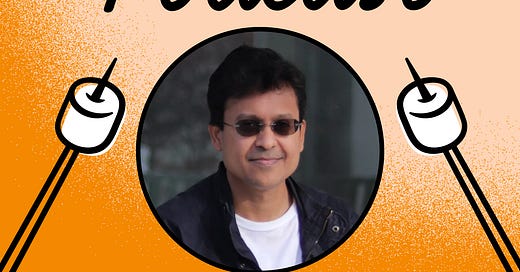
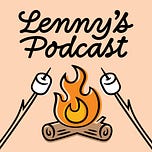

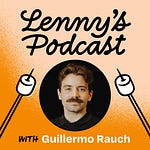
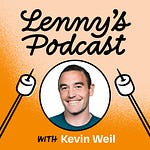
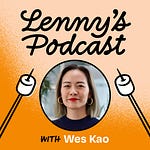
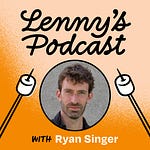
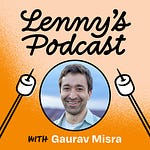
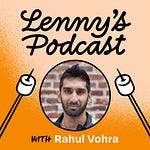
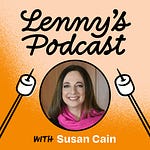
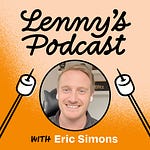
Share this post